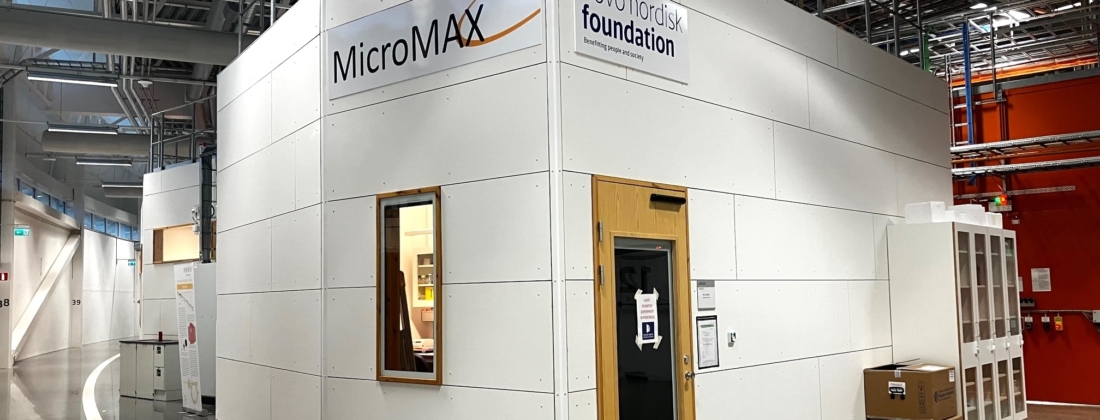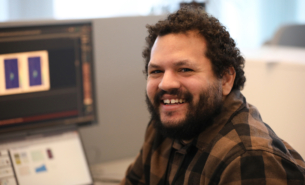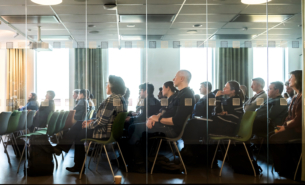User opportunities for studies of structural biology at the new X-ray crystallography beamline MicroMAX just got an upgrade. The Novo Nordisk Foundation is now offering funding for researchers affiliated with a Danish research institution to apply for grants for academic use of the beamline. The programme is called ‘MicroMAX Collaborative Research Grants.’
“We are excited that MicroMAX is now available for researchers to utilise this unique research infrastructure. Therefore, we aim to support research projects that will benefit from this facility to gain new knowledge about the structure, functionality, and dynamics of biomolecules. The funds are targeted Danish researchers, preferably in collaboration with international colleagues, who wish to realise exciting project ideas,” said Lene Oddershede, Chief Scientific Officer, Planetary & Technology at the Novo Nordisk Foundation.
MicroMAX is one of the few synchrotron beamlines with advanced capabilities of studying biomolecules at room temperature. This provides a distinct advantage over most other crystallography research instruments, where nearly all protein and enzyme structures are determined at cryogenic temperatures, i.e., below –150°C, where their movements are frozen in structures that may not be relevant under physiological conditions. The beamline also allows the use of microcrystals, a benefit when working with small amounts of biological molecules.
Unlike conventional X-ray crystallography, the time-resolution of MicroMAX matches relevant structural changes. This can be compared to transitioning from still images to filming protein structures at up to 100,000 frames per second. Thus, researchers can now directly observe numerous chemical reactions and make real time observations of how a drug binds to a protein, how antibiotics degrade, or how an enzyme functions.
“The MAX IV organisation is very delighted with the MicroMAX Collaborative Research Grant Initiative by Novo Nordisk Fonden (NNF). We see that the initiative will further strengthen the already very active Danish MAX IV user community, and that it will contribute greatly to positioning MicroMAX with its outstanding opportunities for serial and time-resolved protein crystallography on the international research map,” said MAX IV Science Director Joachim Schnadt. “The MAX IV staff is very much looking forward to collaborating with the grant recipients, and we would like to express our sincere gratitude to NNF for the initiative.”
The Novo Nordisk Foundation aims to support collaborative research projects between two or three researchers, of which the main applicant must be affiliated with a Danish research institution. Additionally, at least one researcher in the group must be an expert on X-ray crystallography or a closely related method. Research grants of up to DKK 7 million per project are available.
Projects should fall within the Novo Nordisk Foundation’s strategic focus areas of biomedicine, health sciences, sustainability, biotechnology, natural sciences, technical sciences, or data science.
The construction of MicroMAX was funded by the Novo Nordisk Foundation.




